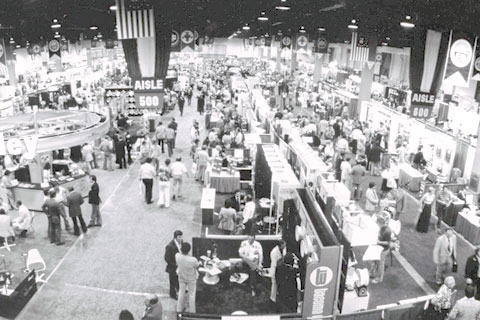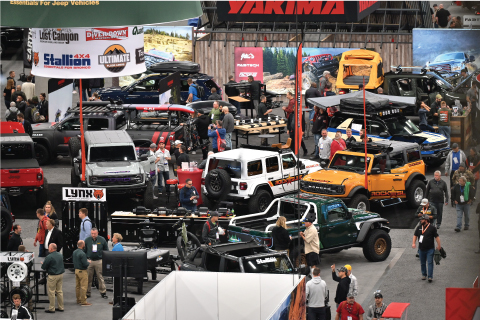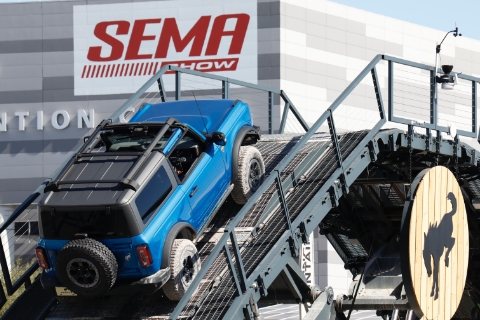SEMA News - May 2010
SEMA Goverment Affairs
 |
|
|
SEMA has identified and is working with a growing number of pro-industry lawmakers who recognize the irreplaceable value of classic vehicles. |
|
Off-Road
In spite of mass opposition from enthusiast and industry groups, areas designed for motorized recreation are under threat of being closed to off-highway vehicles by a slew of new wilderness bills that have been introduced in the U.S. Congress. This is extremely consequential to SEMA members, as these types of regulations potentially deny access to off-roaders who purchase specialty equipment to enhance the off-road utility of their vehicles.
SEMA has urged decision makers to actively solicit the participation of enthusiasts groups in developing these policies.
SEMA has also advocated that regulators in Washington, D.C., do not adopt one-size-fits-all guidelines for motorized recreation. Instead, SEMA promotes a policy that would require the federal government to work with local officials and end users to adopt reasonable and responsible motorized vehicle access while maintaining the overall environmental health of the recreation area.
Restoration
The mother of all vehicle scrappage plans was implemented last year in the form of the U.S. government’s Car Allowance Rebate System, better known as “Cash for Clunkers.” When you combine this program with the increasing number of scrappage bills being introduced around the country by state governments, it seems the only place lawmakers would like to see older cars is in the crusher. Fortunately, SEMA has identified and is working with a growing number of pro-industry lawmakers who recognize the irreplaceable value of these classic vehicles.
Crucial to these efforts is educating policymakers to the fact that these vehicles are well maintained, used only on a limited basis and, in many circumstances, emit less pollution than when first produced. SEMA is also working to support this ever-growing market through legislation that provides reduced or one-time registration fees and other proposals that will ease the bureaucratic burden in purchasing and owning these vehicles.
Street Performance
 |
|
| Some officials have tried to limit the types of modifications that can be made to these vehicles. | |
Over the years, SEMA has worked with lawmakers to enact fair and responsible alternatives to these proposals. SEMA created model legislation to establish a 95-decibel exhaust-noise testing standard to counter restrictive attempts on modified exhaust systems. Instead of banning nitrous-oxide systems, SEMA has urged lawmakers to adopt legislation that permits equipped vehicles to be operated on public roads if the supply lines have been disconnected, the canisters have been removed or if the vehicle is en route to or from a racetrack.
Street Rod
In many states, outdated vehicle registration laws have created confusion for those attempting to register street rods and other custom or specialty vehicles. To help simplify this process, SEMA has developed model legislation to create titling and registration classes for street rods and custom vehicles, including kit cars and replicas.
Through this initiative, qualifying vehicles are assigned the same model-year designations as the production vehicles they most closely resemble and are exempted from periodic inspections and emissions tests. The SEMA-model bill has helped to clear the often muddied process of street-rod and custom titling and has provided a fair and reasonable process for states that either don’t have registration classifications for these vehicles or have laws that are lacking in some way. Through the help of hobby-friendly lawmakers, 20 states have adopted laws based on the SEMA model.
Street Truck/SUV
With the current economic situation and fluctuating fuel prices, the last thing consumers want is additional fees for purchasing a vehicle that meets their needs. To mitigate these burdens, SEMA has consistently opposed attempts to penalize consumers for purchasing trucks and SUVs through increased taxes or vehicle surcharges.
While the aftermarket is a birthplace for many of the new technologies that will help automakers achieve higher fuel standards, new laws must provide the necessary time to apply such breakthroughs to mass production and to ensure that there is no unnecessary disruption to the marketplace, businesses and workers. In addition to these issues, SEMA diligently works with pro-industry lawmakers to prevent restrictions on grille guards, lighting equipment and other truck accessories. SEMA has also rallied against legislative proposals that would unfairly prohibit reasonable modifications to suspension equipment on trucks and SUVs.



